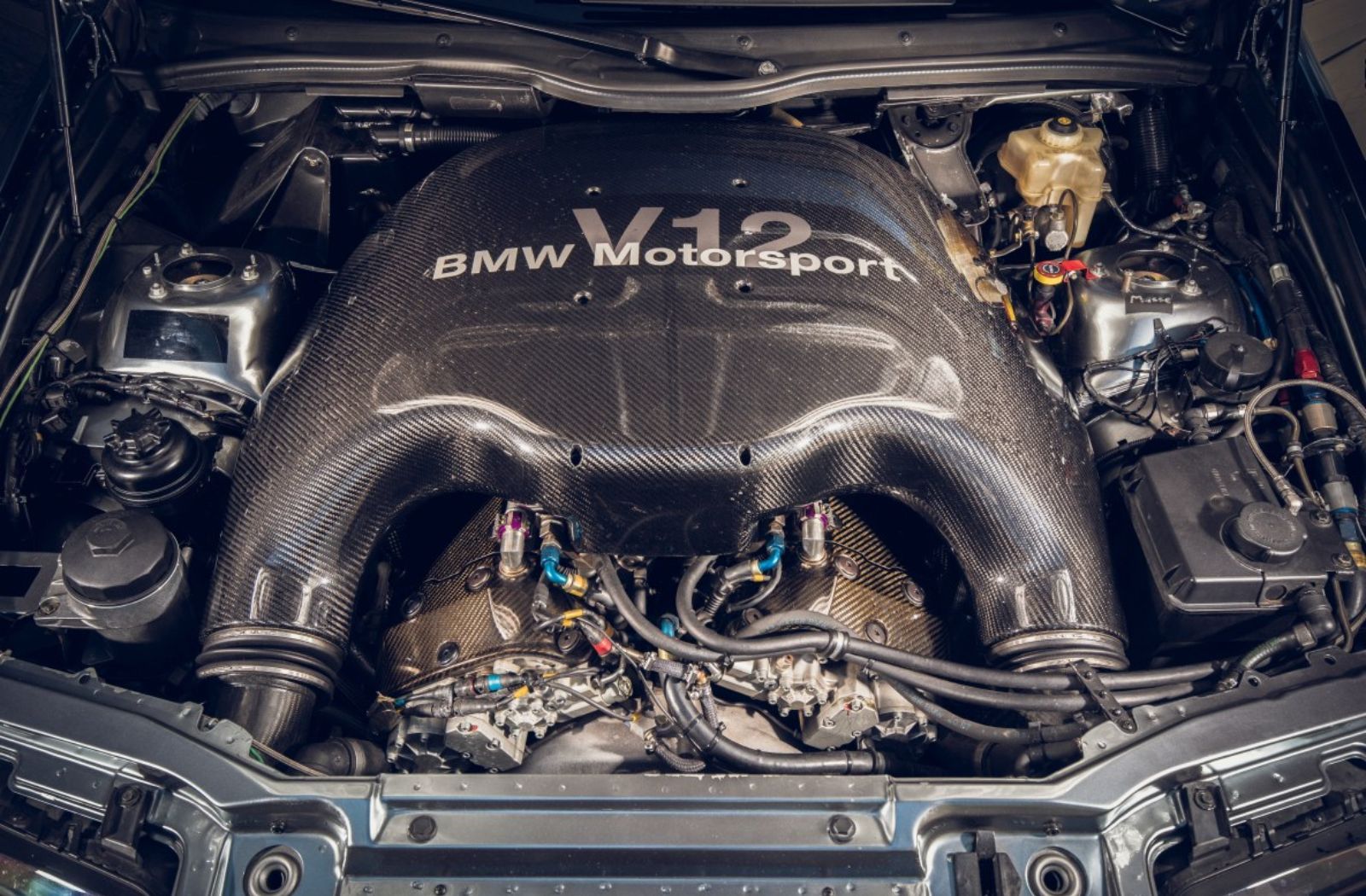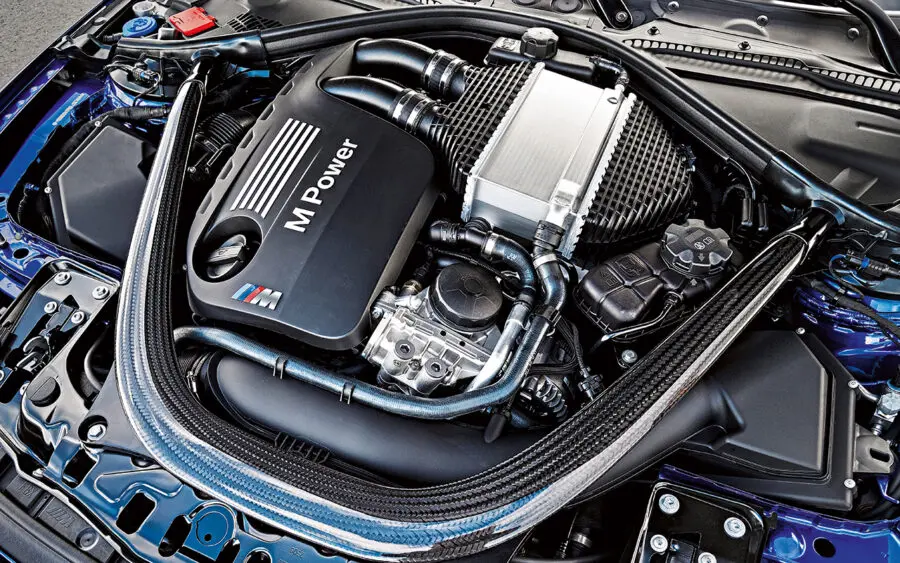The Evolution of the BMW Engine: A Recall at Iconic Models
The Evolution of the BMW Engine: A Recall at Iconic Models
Blog Article
Unveiling the Intricacies of Next-Generation Power Units: a Deep Study Advanced Engine Styles and Technologies
In the realm of auto engineering, the ruthless search of efficiency, efficiency, and sustainability has actually pushed the advancement of power units to unprecedented elevations. As we base on the precipice of a brand-new period in transport, the details of next-generation engine designs beckon us to explore the cutting-edge innovations and advancements that assure to redefine the driving experience. From innovative materials that push the limits of resilience and weight decrease to sophisticated turbocharging and turbo charging systems that boost power output to brand-new degrees, each element of these power units holds a key to unlocking the future of automotive engineering. Digging much deeper right into the realms of discharge control, smart engine management systems, and the horizon of power system growth, we discover ourselves on the cusp of a change that assures to reshape the landscape of flexibility as we understand it.
Development of Engine Products

The shift towards progressed engine products has likewise made it possible for engineers to develop engines with greater power outputs while keeping gas effectiveness criteria. The usage of light-weight products decreases the general weight of the engine, leading to enhanced gas economy and lower discharges. In addition, developments in materials technology have actually permitted better thermal management within engines, leading to raised reliability and longevity.
Turbocharging and Supercharging Technologies
Just How do Turbocharging and Supercharging Technologies change engine efficiency and effectiveness in modern vehicles? Turbocharging and turbo charging are modern technologies that dramatically boost engine performance by increasing the quantity of air intake into the combustion chamber. Turbocharging accomplishes this by using a generator driven by exhaust gases to pressurize the intake air, while turbo charging uses a belt- or chain-driven compressor to accomplish the exact same result.
These modern technologies allow smaller sized, extra fuel-efficient engines to create power equivalent to larger ones, called downsizing. By compeling even more air right into the cyndrical tubes, turbocharging and supercharging improve burning efficiency, resulting in boosted horse power and torque outcome without a substantial increase in engine size. This brings about far better acceleration, towing capability, and overall driving efficiency.
Furthermore, turbo charging and turbocharging add to enhanced fuel performance by allowing the use of smaller engines that consume much less fuel under typical driving conditions - bmw engine. This mix of improved efficiency and performance has made turbocharging and supercharging important components of many modern-day engine styles
Emission Control and Environmental Impact
With raising international worries pertaining to air high quality and ecological sustainability, the execution of emission control innovations in lorries plays a critical role in lowering damaging contaminants released into the ambience. Modern cars are outfitted with innovative exhaust control systems that help minimize the ecological effect of vehicle procedures. Catalytic converters, for example, are made to convert poisonous gases such as carbon monoxide, nitrogen oxides, and hydrocarbons right into much less damaging substances like carbon dioxide and water vapor.
Furthermore, advancements in engine modern technology, such as the integration of exhaust gas recirculation systems and selective catalytic reduction, have substantially added to decreasing emissions. These modern technologies work in tandem to maximize combustion effectiveness and decrease the launch of damaging pollutants into the air. Additionally, the growth of crossbreed and electrical vehicles represents a crucial action in the direction of lowering the total environmental footprint of the transport market.
Intelligent Engine Administration Equipment

Furthermore, these systems enable lorries to meet stringent discharges requirements without compromising performance, offering an extra eco-friendly driving experience. The combination of man-made knowledge and artificial intelligence abilities in engine management systems proceeds to press the borders of what is possible, bring about further enhancements in efficiency, integrity, and general car efficiency. bmw engine. As vehicle technology breakthroughs, smart engine monitoring systems will certainly play a crucial role fit the future of transportation towards an extra lasting and reliable direction
Future Trends in Power Unit Development
As intelligent engine management systems pave the means for improved control and optimization in contemporary cars, future patterns in power device development go to these guys are poised to redefine the landscape of automotive propulsion modern technologies. Among the key fads driving development in power device growth is the shift in the direction of electrification. With a boosting concentrate on sustainability and minimizing carbon emissions, crossbreed and electric powertrains are becoming much more prevalent in the vehicle market. These different power resources provide improved performance and efficiency while straightening with strict ecological laws.
An additional substantial pattern is the integration of innovative products and producing techniques. Lightweight products such as carbon fiber and aluminum are being used to decrease total automobile weight, boosting gas performance and efficiency. In addition, advancements in 3D printing and additive manufacturing are making it possible for the manufacturing of complex engine components with greater accuracy and durability.
Additionally, check here artificial knowledge and maker discovering are playing an important role in optimizing power system performance. These innovations permit real-time surveillance and flexible control, bring about a lot more reliable and effective power distribution. On the whole, future trends in power system development are tailored towards efficiency, performance, and sustainability, driving the auto sector in the direction of a new era of propulsion innovations.

Final Thought
In conclusion, the advancements in engine materials, turbocharging, emission control, and smart administration systems have paved the way for next-generation power systems. The complex layouts and developments in modern engines showcase the ongoing advancement of vehicle modern technology.
Exploring the dynamic developments in engine products has actually been pivotal in enhancing the efficiency and performance of contemporary engines. Over the years, the evolution of engine materials has actually played a crucial role in pushing the boundaries of what engines can attain.The shift towards advanced engine materials has likewise enabled designers to design engines with higher power results while maintaining gas effectiveness requirements.The execution of smart engine management systems in contemporary automobiles has actually transformed the way engines anonymous are controlled and enhanced for efficiency and performance. By accumulating data in real-time and assessing it with innovative formulas, intelligent engine monitoring systems can adjust to driving styles, environmental elements, and engine health to make the most of power output while minimizing fuel usage and emissions.
Report this page